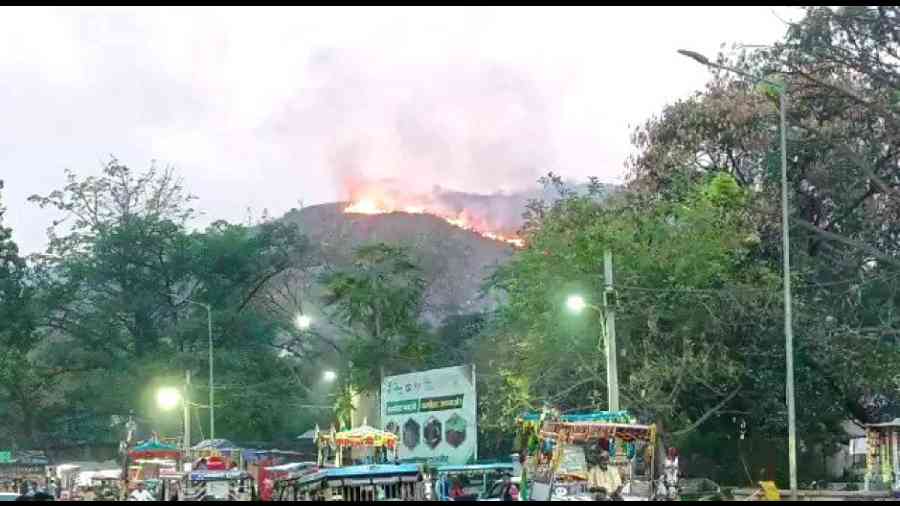Officials from the forest department and the Archaeological Survey of India (ASI) heaved a sigh on Tuesday after the widespread fire in the jungles of Rajgir in Bihar's Nalanda district was doused.
It took more than 72 hours of continuous efforts by firefighters, forest officials and the district administration to douse the fire in an area that is dotted with remains of ancient sites and monuments and boasts of much bio-diversity.
The fire service director general, Shobha Ohatkar, told The Telegraph that 150 firemen, 25 officers, 40 fire tenders, two hydraulic platforms and several other kinds of fire dousing equipment were pressed to fight the fire that had spread over the Vaibhargiri Hills in Rajgir.
“It was a challenging task because the fire was at a height in a difficult terrain. It was quite a job to reach the place with water and firefighting equipment. Besides, there were habitations in the neighbourhood of the fire outbreak,” Ohatkar said.
“We first surrounded the human habitation areas with fire tenders to prevent any loss of life and then went ahead to put out the fire, which was initially spread over an area of one square kilometre, but later spread with the dry westerlies,” the fire services director general added.
Ohatkar, who had visited the spot, said that the fire could have been spread due to tourists venturing into the forests and cooking food. “I have suggested the district magistrate, the divisional forest officer to bring some regulation to check the cooking of food by tourists in the area. The police also could do some checking to prevent it,” Ohatkar said.
Nalanda divisional forest officer Vikash Ahlawat told this newspaper on Tuesday that the fire was completely doused.
“The spread of the fire was in a linear pattern for around 4km, its width was less so the total affected area was also less. We have not lost much forest wealth, vegetation or bio-diversity. Bamboo thickets were mostly affected. There has been no known loss of forest animals.” Ahlawat said.
The ASI officials said they were worried as the fire was very close to the Saptaparni Caves; the Siddhanath Temple; A unique ancient Jain Shrine that has several idols and statues; the Sone Bhandar caves, ancient King Jarasandh’s meeting place and parts of the ancient Cyclopean wall around 2,500 years old.











